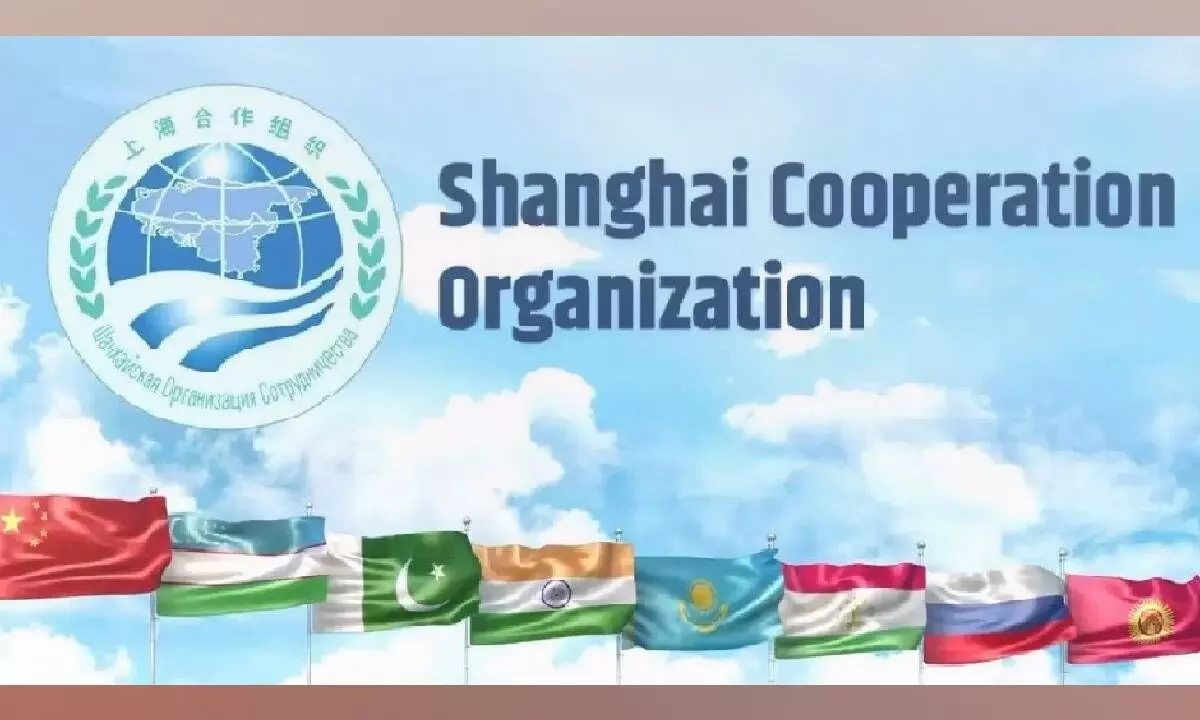India must have a voice in SCO to foster long-term economic ties
India opposes the China-Pakistan Economic Corridor as it extends into Pakistan occupied Kashmir
image for illustrative purpose

India’s participation in the Shanghai Cooperation Organisation has been questioned on the grounds that there is little commonality with the members of this regional grouping. It is also felt that there is not much advantage in being with the group, given that most of the members are closely aligned to each other. Ties between China and Russia, for instance, have become even warmer after the Ukraine war while other central Asian members follow the line laid down by them.
The entry of Iran is also not likely to give India much leverage, given that it has become closer to China over the past few years. New Delhi, on the other hand, did not try to circumvent sanctions on sale of Iranian oil as was done in the case of Russian oil.
It also cannot be denied that India is now moving closer than ever to the U.S. on the strategic and economic front. At the same time, it is imperative India to continue its membership with central Asian group in order to reinforce its traditional ties with many of these countries such as Kazakhstan and Uzbekistan. It also needs to build deeper relations with these countries given the fact that they have huge hydrocarbon resources, though these have not been fully tapped in many cases.
It is also crucial to register its presence even as a lone dissenting voice in many cases. In the recently concluded virtual SCO summit, India maintained its opposition to China’s ambitious Belt and Road Initiative (BRI). This year’s summit was hosted by New Delhi on a virtual basis but it refused to endorse the BRI, despite the supporting declaration signed by all other member countries. The stance is consistent with its policy to disassociate itself with a project that directly impinges on its sovereignty.
For those who are unfamiliar with the project, the BRI is a series of infrastructure projects meant to link Europe with East Asia. It comprises both a land route and sea route and has thus extended to Africa and Oceania apart from many countries in Asia. It was originally named as One Belt, One Road and was inspired by the concept of the ancient Silk Road that connected China with Europe centuries ago. Approximately, 147 countries have already joined the BRI, which was launched in 2013 by Chinese President Xi Jinping. According to some estimates, the cost of the initiative is about one trillion dollars.
India’s main objection to the BRI has been the so-called China-Pakistan Economic Corridor, which extends into Pakistan occupied Kashmir. This is viewed as infringing on this country’s regional and territorial sovereignty.
Prime Minister Narendra Modi commented in an oblique way on the project, noting that strong connectivity was crucial for the region but it was essential to uphold the basic principles of the SCO charter. He declared that these included respecting the sovereignty and regional integrity of member states.
Though New Delhi has remained out of the BRI and expressed opposition even at last year’s SCO summit, its neighbours have joined in the hope that it will strengthen infrastructure development in their countries. On the contrary, the scheme has ended up becoming a debt trap as Pakistan, Bangladesh, and Sri Lanka are being forced to rely on loans from International Monetary Fund (IMF) to stabilise their finances.
Reports from Pakistan, for instance, indicate the hope that the BRI projects would provide large scale employment was belied as China brought most of the manpower from its own country. The Sri Lanka story is well known about China establishing a port that involved an investment of 1.3 billion dollars. It ended up being a white elephant with a huge debt overhang, while the port was given on a 99-year lease to China.
India may not have signed the declaration on the BRI, but it took the opportunity to introduce some new pillars for cooperation in the SCO. These include start-ups and innovation, traditional medicine, youth empowerment, digital inclusion and shared Buddhist heritage. The new elements were outlined as India’s area of focus for Eurasia. Some of them are significant as they rely on its strengths in information technology. For instance, the themes of start-ups and innovations as well as digital inclusion are bound to evoke interest in the central Asian republics. Though China also has a large start-up ecosystem, it does not have a digital stack on the lines evolved in this country. The Indian stack can become a template for emerging economies in the region to adopt in their own financial systems.
Thus India’s membership of the SCO should be viewed in a long-term perspective. In the short run, it may have the weight of unfriendly neighbours like China and Pakistan working against it.
But in the long-run, the economic and strategic interests with the central Asian region are significant and it is critical to play an active role in such a regional grouping.

